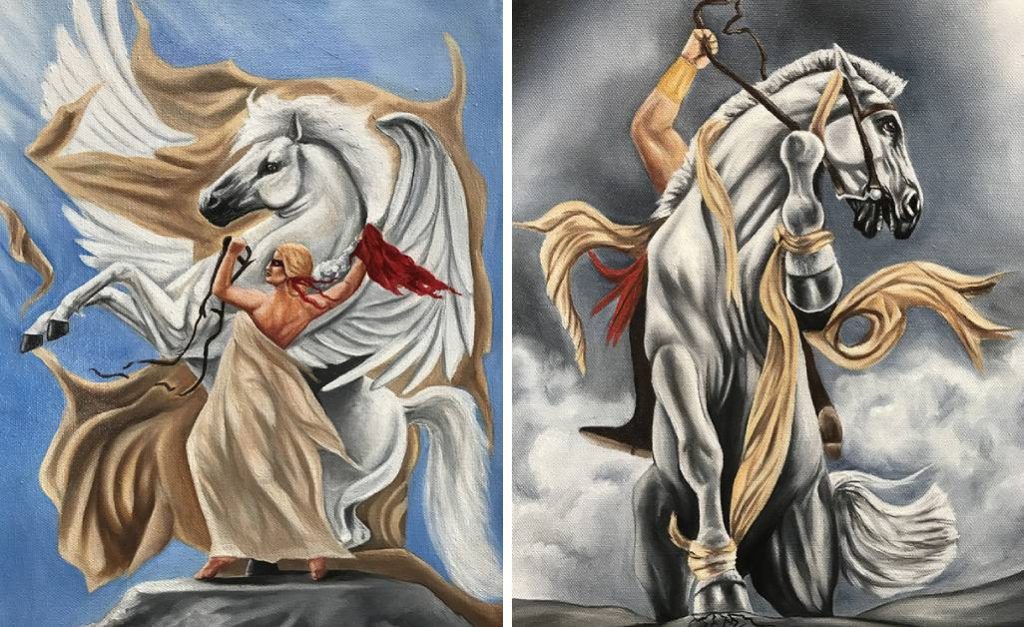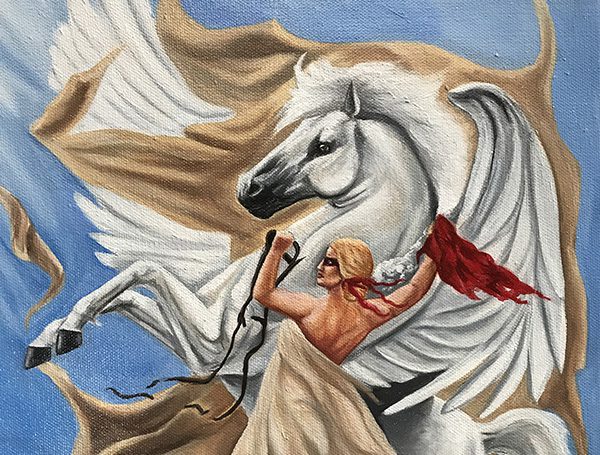
The Liberator
Liberators have a deep sense of justice and recognize inequality most readily. They feel a calling to bring about freedom from the oppressor in all its forms. But oppression has many faces. It may be in the form of a controlling government, unfair laws, cruelty, control of others, or it may appear in a less obvious form as physical disease, low self esteem, limiting beliefs, rigidity and general helplessness. Liberators have an ability to draw out of themselves and others the natural inclination towards freedom. They believe freedom is our birthright and is a totally natural state of mind. They will fight for others freedom and they are always striving to look at their own constraints so that they never stay entrapped by their own thinking or behavior. They understand they must free themselves to be of any help to others. They are flag bearers, holding ideals aloft for others to see and believe in. They are the heralds of society, bringing a message of hope and freedom to others.
History has provided us with many examples of Liberators. Especially during periods of uprisings and slavery of any kind. The Biblical story of Moses serves as a good mythological model of the Liberator archetype. According to the story, Moses resisted the role for some time, knowing that choosing the path of Liberator would cost him almost everything. He eventually heeded the call and helped free the Hebrews from Egyptian slavery and led them to the Promised Land. A person like Harriet Tubman, an escaped slave who went back to the south many times to free other slaves was a great example of a Liberator. She also worked for the Union Army during the Civil War as a spy. She was dubbed Moses for her role in bringing not only herself out of enslavement but risking everything to help free others. Historical liberators include suffragettes, civil rights leaders of the 1960’s and many others.
The Liberator often is required to act alone, according to the dictates of his or her conscience. This means cultivating a deep self-trust. They know that the consequences might be dire but they must act anyway. The Liberator archetype is hopeful and optimistic, believing deeply in their convictions about freedom they rarely accept defeat. They are expansive, making room in their beliefs for many different truths. One of the most important qualities of the Liberator is personal responsibility. Freedom without responsibility is tyranny.
Some key words and phrases associated with this archetype:
Freedom
Power
Responsibility
Self Trust
Openness
Hopeful
Expansive
The Oppressor
It is quite easy for the Oppressor to believe he or she is a Liberator. They posses the natural leadership qualities and the self assurance of a Liberator but with darker intent. The Oppressor wants to free others only to then bring them under his or her authority. They might help a friend deal with a problem for example only to find themselves frustrated when the friend doesn’t continue to do everything that is suggested. Allowing others to make their own decisions and mistakes is difficult for the Oppressor. They assume they know a better way and are convinced that others should follow them. They can be self righteous and overly confident. It is often only a matter of time before the get “thrown and kicked in the head.” The Oppressor believes they know what is best for others and though they speak the language of freedom their actions are those of a dictator. This is a perfect example of freedom without responsibility.
An example of the Oppressor from history is Vladimir Lenin who promised Peace, Land and Bread to his suffering and oppressed countrymen only to sweep through Russia with a new dictatorship and even a new name for their country: The Soviet Union. He is quoted as saying “It is true that liberty is precious, so precious that it must be carefully rationed.” Those are the words of a shadow Liberator. The Oppressor is arrogant and self-righteous. They believe the ends justify the means. This mindset allows them to dismiss their destructive behaviors and hide their motives. Not all dictators are shadow liberators, many just pursued power and took it whatever the means. To have this archetype one must be able to see the tendencies of treasuring freedom and then not wanting to allow others that same freedom.
Some words and phrases associated with The Oppressor Archetype
Controlling
Forceful
In Your Face
Cold
Disregard for Others
Arrogant
Destructive
A few questions to ask to transform the Oppressor into the Liberator
- Why is freedom an important value to me?
- What makes me afraid of others having total freedom?
- What part of my life controls me?
- How can I take responsibility for the freedom I afford myself?
- What is true freedom and how is it enacted in my own life?
- What are healthy boundaries?
- What would happen if I truly respected others’ rights and desires?
- What are the areas of my life where I am not free?
- How are humility and freedom connected?

